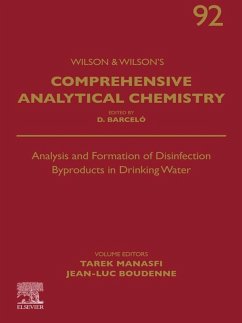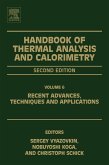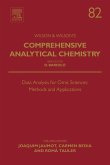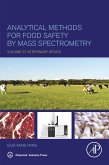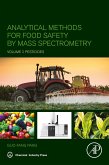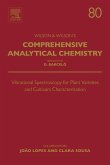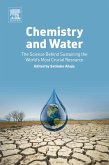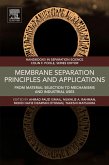Drinking water disinfection has markedly reduced diseases causes by waterborne pathogenic microorganisms. However, an unintended consequence of disinfection and/or oxidation processes is the generation of disinfection byproducts (DBPs) which are formed from the reactions of disinfectants/oxidants with water matrix components. This volume of the Comprehensive Analytical Chemistry Handbook presents recent advances about the formation, identification, and quantification of inorganic and organic DBPs during oxidative processes. The book begins with a first chapter reviewing the most recent non-targeted screening approaches and workflows to characterize DBPs using low-, high-, and ultra-high-resolution mass spectrometry. The second chapter discusses the analysis of inorganic chloramines in waters using on-site and/or in-lab analytical methods. The third chapter provides an overview of the current knowledge about the mechanisms of chlorine dioxide reactions and byproducts formation. The fourth chapter presents some fundamental and practical aspects about ozonation processes in water treatment and provides an overview about ozone reaction mechanisms and byproducts formation. The fifth chapter focuses on the reactivity of halide ions, particularly bromide and iodide, with common oxidants and the role they play in determining the speciation of DBPs in treated waters. The chapter also presents strategies to mitigate the formation of DBPs during oxidation processes. Finally, the last chapter tackles the topic of DBPs formation during potable water reuse. It discusses the formation of DBPs of major concern in both memebrane-based and non-membrane-based potable water reuse treatment schemes.Researchers, water treatment specialists, and regulators will find in this book a valuable and compact resource on several key topics regarding the formation, identification, quantification, and mitigation of DBPs.
- Identification and quantification of known and unknown DBPs
- Formation of DBPs during different disinfection/oxidation processes
- DBPs of concern in new technologies and/or new applications of existing technologies in water treatment
Dieser Download kann aus rechtlichen Gründen nur mit Rechnungsadresse in A, B, BG, CY, CZ, D, DK, EW, E, FIN, F, GR, HR, H, IRL, I, LT, L, LR, M, NL, PL, P, R, S, SLO, SK ausgeliefert werden.

